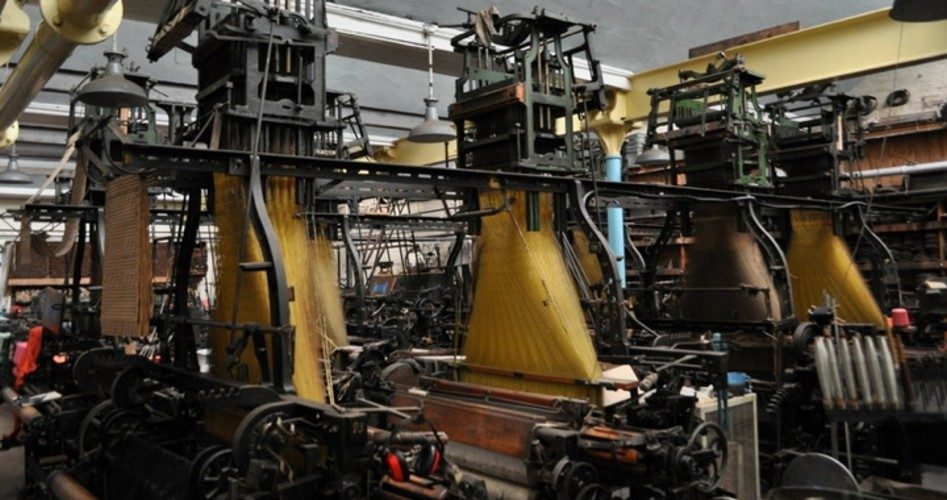
After reviewing 140 years of data in England and Wales, the consulting firm Deloitte just reported that technology has actually created more jobs than it has destroyed. Because new technology has reduced greatly the costs of common staples such as food, household goods, and transportation, consumers have been increasing their spending elsewhere. Deloitte calls new technology a “great job-creating machine,” adding:
The dominant trend is of contracting employment in agriculture and manufacturing being more than offset by rapid growth in the caring, creative, technology and business services sectors.
The authors added that perceptions that technology destroys jobs, leaving workers idle, are simply flat dead wrong:
Machines will take on more repetitive and laborious tasks, but seem no closer to eliminating the need for human labor than at any time in the last 150 years….
[In other words] the stock of work in the economy is not fixed.
Workers whose jobs are eliminated thanks to technological advances find themselves not only able to find other work, but other work that often pays better than where they were initially employed. For instance, while the number of agricultural workers declined by 95 percent in England and Wales between 1981 and 2012, “caring” jobs in healthcare have exploded. While the number of launderers has declined from 200,000 in 1901 to just 35,000 in 2012 (while the population of England and Wales over that period nearly doubled), the number employed as nursing assistants increased by 900 percent between 1992 and 2014. As the authors noted:
A collision of technologies, indoor plumbing, electricity and the affordable automatic washing machine have all but put paid to large laundries and the drudgery of hand-washing.
This represents a “profound shift,” say the authors, from the dull, repetitive, and often dangerous work in factories “to the care, education and provision of services to others.”
That profound shift has also resulted in the increase in the number of people employed in bars, which quadrupled between 1951 and 2011. Hairdressers and barbers are benefiting as well from the increase in spendable incomes resulting from technological innovation. In 1981, for example, there was one hairdresser or barber for every 1,800 people in England and Wales. Today there is one for every 287 people.
Between 1992 and 2014, there has been a 580-percent increase in the number of teachers and educational support assistants, a 183-percent increase in welfare, housing, youth, and community workers, a 168-percent increase in the number of home care workers, and a 20-fold increase in the number of accountants.
By itself the Deloitte study challenges the Luddite mentality still exhibited by those in the White House, or seeking residence there. In September 2013, President Obama was being interviewed by George Stephanopoulos about “income inequality,” and the president revealed his Luddite worldview by disparaging technology:
Technology! If you go to — a lot of companies now — they’ve eliminated entire occupations because they’re now robotized.
We don’t have travel agents. We don’t have bank tellers.
And presumptive Democrat presidential nominee Hillary Clinton criticized those participating in the “on demand” economy that is “raising questions” about how traditional government services will be handled and funded as individuals find new work as free-lancers and Uber drivers.
This Luddite mentality was also repudiated by another study by the Bay Area Council Economic Institute, which pointed out that not only are tech jobs higher paid and growing faster than any other in the economy, they are also “creating more indirect jobs by far than any other industry.” It reported,
For each job created in the high-tech sector, approximately 4.3 jobs are created (the multiplier effect) in other local goods and services sectors across all income groups, including lawyers, dentists, schoolteachers, cooks and retail clerks, among others.
[In addition, that] multiplier effect in the high-tech sector is significantly higher than for almost any other sector. By comparison, traditional manufacturing has a multiplier effect of [only] 1.4 jobs.
The combination of the growing need for service jobs surrounding the high-tech sector, along with those moving out of dated and redundant positions thanks to technological advances and into the “gig” or “collaborative” economy, reveals the degree to which Obama and Clinton remain out of touch with the new reality.
Photo of a Jacquard Loom: Ashley Dace
A graduate of an Ivy League school and a former investment advisor, Bob is a regular contributor to The New American magazine and blogs frequently at www.LightFromTheRight.com, primarily on economics and politics.
Related article:
“Gig” Economy Ending Lifetime Careers, Opening Opportunities



